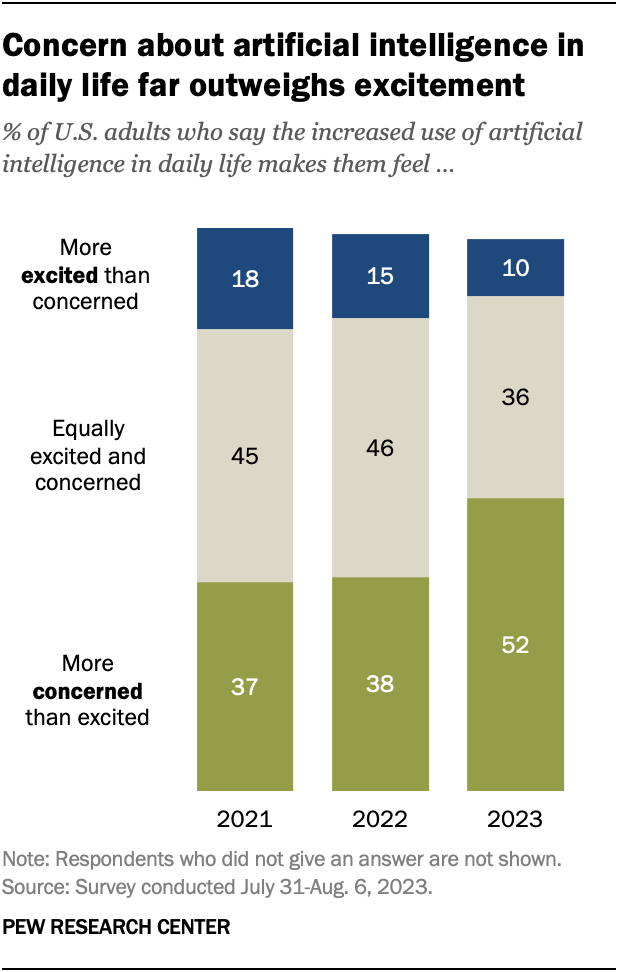Weekly Grounding #29
News, links, writing
Weekly Groundings are published every Friday to highlight the most interesting news, links, and writing I investigated during the past week. They are designed to ground your thinking in the midst of media overload and contribute to Handful of Earth’s broader framework. Please subscribe if you’d like to receive these posts directly in your inbox.
Without further ado, here’s this week’s Weekly Grounding:
“Voters See American Dream Slipping Out of Reach, WSJ/NORC Poll Shows”
A new Wall Street Journal poll finds extremely high levels of pessimism about the American dream, even compared to last year: “Only 36% of voters in a new Wall Street Journal/NORC survey said the American dream still holds true, substantially fewer than the 53% who said so in 2012 and 48% in 2016 in similar surveys of adults by another pollster. When a Wall Street Journal poll last year asked whether people who work hard were likely to get ahead in this country, some 68% said yes—nearly twice the share as in the new poll.” The trend over the past decade is clear:
The article adds that “an NBC News survey released this month found that 19% [of Americans] felt confident that life for their children’s generation would be better than for the current one—a record low in the group’s surveys dating to 1990.”
“New CDC Life Expectancy Data Shows Painfully Slow Rebound from Covid”
The Washington Post reports on life expectancy in the United States, with a misleading title that highlights covid rather than the deeper causes mentioned in the article itself: “Life expectancy rose in a relatively steady fashion for all of the 20th century and the first decade of the 21st. But starting in 2010, the country entered a decade of stagnation in this key metric. Drug overdoses, homicides and suicides played major roles in flattening the life expectancy curve. But the greatest erosion in life spans comes from chronic illnesses, The Post found in its analysis of death data.” For more on this topic, see Weekly Grounding #21.
“U.S. Suicides Reached a Record High Last Year”
On a related note, The Wall Street Journal reports that the suicide rate in the United States has reached its highest level since 1941: “Nearly 50,000 people in the U.S. lost their lives to suicide in 2022, according to a provisional tally from the National Center for Health Statistics. The agency said the final count would likely be higher.” The article continues: “Men 75 and older had the highest suicide rate last year at nearly 44 per 100,000 people, double that for people 15-24. Firearm-related suicides become more common with age as people experience declining health, the loss of loved ones and social isolation. While women have consistently been found to have suicidal thoughts more commonly, men are four times as likely to die by suicide.”
“What the Data Says About Americans’ Views of Artificial Intelligence”
Against this bleak backdrop, technological advances like artificial intelligence are often invoked as a cause for optimism. However, this recent Pew Research Center survey demonstrates that Americans from across the political spectrum are increasingly pessimistic about AI due to concerns about “loss of the human element” in the workplace and healthcare, “negative impacts on jobs,” and worries surrounding “surveillance and data privacy.” Overall, only 10 per cent of Americans are more excited than concerned about the use of AI in daily life:
“Sam Altman’s Second Coming Sparks New Fears of the AI Apocalypse”
On the topic of AI, I would be remiss not to touch on the drama surrounding Sam Altman and OpenAI during the past week. This article at Wired observes that the Altman affair has “crystallized existing divides over how the future of AI should be governed. The outcome is seen very differently by doomers who worry that AI is going to destroy humanity; transhumanists who think the tech will hasten a utopian future; those who believe in freewheeling market capitalism; and advocates of tight regulation to contain tech giants that cannot be trusted to balance the potential harms of powerfully disruptive technology with a desire to make money.” For my own thoughts on the debate surrounding AI existential risk, see “Telos or Transhumanism?” For previous discussion of Altman on Handful of Earth, see Weekly Grounding #23.
“Gaza Civilians, Under Israeli Barrage, Are Being Killed at Historic Pace”
The New York Times reports that “While wartime death tolls will never be exact, experts say that even a conservative reading of the casualty figures reported from Gaza shows that the pace of death during Israel’s campaign has few precedents in this century. People are being killed in Gaza more quickly, they say, than in even the deadliest moments of U.S.-led attacks in Iraq, Syria and Afghanistan, which were themselves widely criticized by human rights groups.” The numbers are staggering and expose Israeli lies about efforts to protect noncombatants:
“Ireland’s Liberals Are Copying America on Immigration”
Addressing the recent riots in Dublin for Unherd, Philip Pilkington observes that in Ireland “the entire immigration issue…is framed in an identical manner to the immigration debate in the United States. So when in America those who dislike the porous border with Mexico are framed as racist hillbillies, the Irish ‘East American’ liberal elite go in search of racist hillbillies of their own and find them among the working class of Dublin’s inner city.” Pilkington continues: “Ireland has become a sort of cultural satrapy of American liberalism. Yet while the Irish elite are comfortable in their satrap roles, the broader population finds the new ideologies foreign and bizarre. They simply do not understand them. Most citizens have basically the same view of Ireland as they did before the American liberal revolution swept the shores of the country. And this puts them on a collision course with an increasingly out-of-touch and frightened elite, whose control appears to be slipping.”
What grounded your thinking this week? Feel free to share in the comments.





